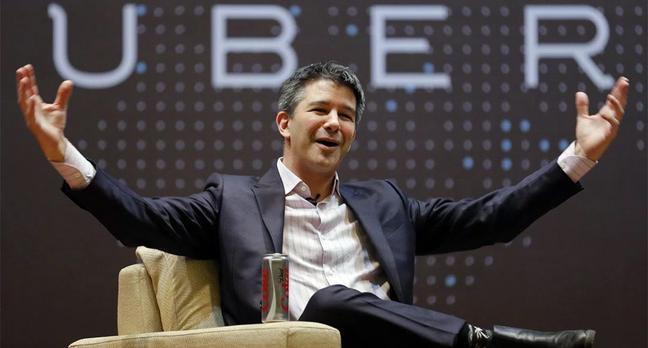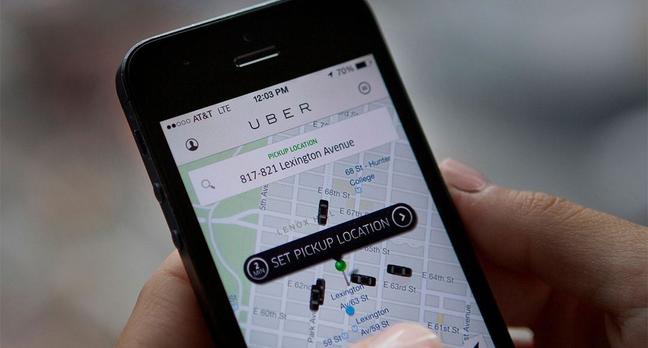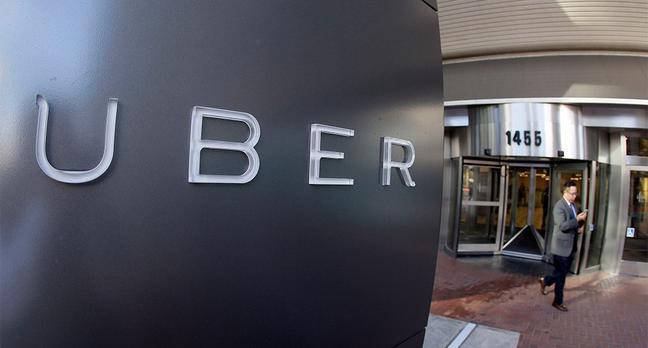Is Uber going public? And should you invest?
Industry insiders suggest that the car service is to become the hottest IPO of the year
“I feel like we maybe just entered high school” said Uber CEO Travis Kalanick in an interview with Vanity Fair last year. “It’s not time to go to prom yet.” Kalanick was talking about the possibility of Uber – the hyper-disruptive ridesharing and taxi app – going public in the near future.
Six months on, and the world’s most valuable private company (last estimation: some $68 million) remains just as evasive about its eventual emergence onto the public market.

The industry press, however – fuelled by murmurs from inside the Uber camp – seems certain that 2017 is the year. Snap, the holding company for Snapchat and its creative labs, is looking set to file an IPO (Initial Public Offering) on March 1st at an outrageous value of $22.5 million.
Word in the Valley is that Uber may just want to ride that wave of tech investment optimism all the way to the bank
Spotify have plans to do the same come spring. And the word in the Valley is that Uber may just want to ride that wave of tech investment optimism all the way to the bank. What’s more, Kalanick recently went on record to say that an IPO is a “moral obligation” for stakeholders who want to see some liquidity. Might 2017 be the year when the obligation becomes an imperative?
So that little grey car may well now be reaching its destination. But is it worth jumping aboard? Today, we look at the prevailing sentiment in both the tech press and the investment industry as we answer the biggest business question of 2017: is Uber worth an investment?

The market is hungry for a big name tech float. Recent high-growth IPOs like Twilio Inc (the cloud communication service) and Nutanix (a cloud software builder) have traded very healthily since their respective debuts last year, a good sign that the market has a real appetite for tech projects of this kind.
It’s the company’s side projects that really excite potential investors.
Uber is seen as much more than just a taxi app. Though ride-sharing is the area that Uber dominates, it’s the company’s side projects that really excite potential investors.

Uber EATS saw the company take a sizeable bite out of the meal-delivery market in 2016, while Otto, a start up that specializes in self-driving trucks, was bought by the company in August 2016 with the view to taking on the driverless car game in the near future. Not only would a driverless model put Uber on a par, tech-wise, with Google and General Motors and Tesla, but it would also decimate their operating costs.
Net revenue smashed records last year. In a year that saw Uber dogged by controversies, lawsuits and the emergence of local competitors, the company still managed to trounce the general predictions for their revenue. In the third quarter of 2016, net revenue hit $1.7 billion – a 240% increase from the same period a year earlier. If that is Uber on a bad day, imagine what they’ll do in the relative calm of 2017.
Uber is very good at raising money, even when times are tough. Despite losing over $1 billion in the first half of 2016 amongst the controversies and criticism, Uber gained even more revenue in that same time period. What’s more, the private investment kept rolling in. Uber has raised $12.9 billion since its launch in 2009, and is known as a remarkable fundraiser. This skill and asset may well excite and entice venture capital investors if it goes public later this year.

The IPO market is in a rut. Initial Public Offerings raised a distinctly disappointing $18.9billion in 2016, with annual proceeds dropping to their lowest levels since 2003.
Only four companies that filed IPOs grossed more than $1 billion. Wall Street and its ilk seem fairly resistant to high-cap public investments at the moment, preferring to place their investments in lower-valued and lower-risk propositions. And that could be troublesome for Uber, which is currently valued at at around 40 times the value of its annual sales.
Any prospectus may well be light on numbers. Morgan Stanley’s prospectus offering document for when they sold their chunk of Uber in 2015 may well have been 25 pages long, but it was distinctly light on hard financial information. So far, Uber has succeeded in raising capital based on hype as much as detailed projections. The harsher wilderness of the public market might be less forgiving of such levity.

The company could be in a sticky legal position. Uber have traditionally ridden rough-shod over local employment, insurance and taxi laws, and largely got away with it. But that luck can’t last forever. Any company whose business model relies on vast changes to an entrenched and long-standing legal system represents something of an unstable investment. A few big name legal decisions in key markets, and Uber could be in a world of trouble.,
Growth could slow soon. Huge bookings ($5.4 billion) in the third quarter suggest that Uber has already claimed the lion’s share of the markets in which it operates.
That could mean that growth will start to slow soon – capturing more customers in existing cities will get steadily trickier, as will moving to rural areas and competing there. And that’s before you get to the increased competition. Uber bowed out of China at a cost of $1 billion in cash a year, after losing the legal battle with behemothic local competitor Didi Chuxing in July.

Lest we forget, Uber still loses money – potentially as much as $2.8 billion last year. Expansion into previously fertile-looking markets such as India has proved very costly and frustratingly slow.
And it’s hard to know precisely what the path to profit looks like – the company will likely be dogged by legal battles and new marketing costs wherever it seeks to expand, while raising fares would threaten its highly competitive position. As for taking a bigger share of the booking price, that would likely further alienate an already distressed driver base.

Become a Gentleman’s Journal Member?
Like the Gentleman’s Journal? Why not join the Clubhouse, a special kind of private club where members receive offers and experiences from hand-picked, premium brands. You will also receive invites to exclusive events, the quarterly print magazine delivered directly to your door and your own membership card.


